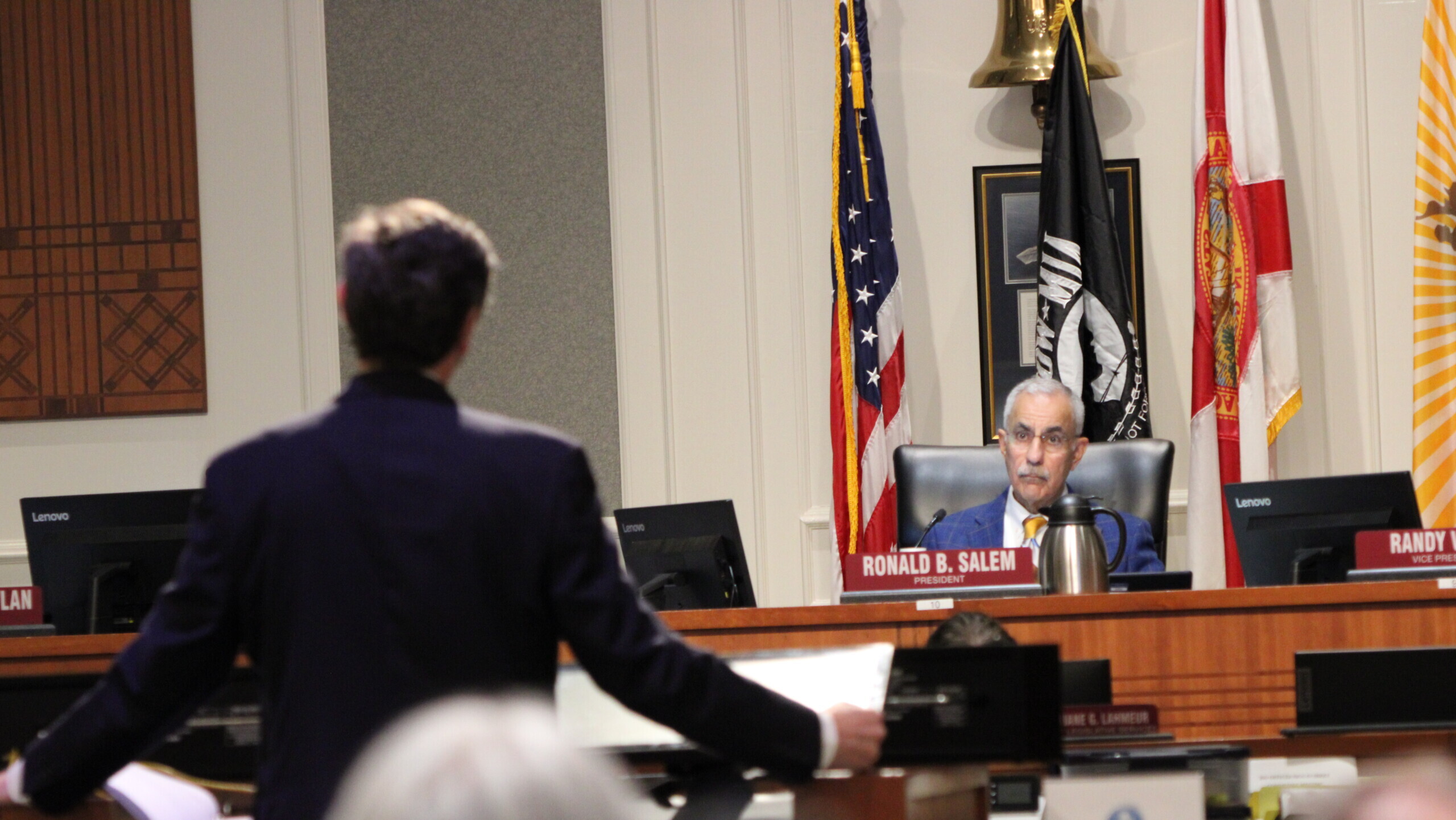
Last week saw one of the more compelling conflicts in consolidated government in recent memory come to a head.
General Counsel Michael Fackler took pointed questions from nearly half of the City Council regarding his office’s decision to side with Mayor Donna Deegan and against the legislative branch in the ongoing dispute over a rate increase for Meridian Waste.
Deegan vetoed a 29% raise. The Council overrode that veto. And Fackler, advancing a novel read on Charter and code, decided that the council really doesn’t have the right to set rates after all.
What’s next? Beyond lawyer fees for Meridian’s retained counsel, who can really say.
My old friend Sam Mousa had a saying about flashpoints of City Hall conflict: “The mayor proposes, the council disposes.”
His aphorism left no room for the general counsel’s input, however.
Many members of the council would like to dispose of Fackler, if last week’s public meeting called by Ron Salem is any indication.
Salem, who has filed a no-confidence resolution about Fackler, said the lawyer didn’t “advise” the city council ahead of the Meridian decision. Rory Diamond, a co-introducer of the resolution, said that inaction led to “live grenades” being fired at the legislative branch in the form of an impending Meridian lawsuit.
Council member Joe Carlucci charged that Fackler was trying to “change the rules of the game.” Nick Howland fumed of “further breakdown” in the relationships on the 4th Floor. Council VP Kevin Carrico said that the council was the victim of a “set up.” And Chris Miller questioned if the city council had a general counsel at all, given that Fackler is more attuned to the executive branch than the legislative.
Multiple members of the council have told me that if they had their druthers, Fackler would resign. However, they aren’t blameless in why he’s there in the first place.
With little vetting, they confirmed him unanimously to the position, as they were punched out after rebuffing Deegan’s first nominee, maverick Republican Randy DeFoor, a former colleague who didn’t get along with all of them when she represented Ortega and points north up until 2023.
Ironically, the council may have liked some of DeFoor’s reasoning better. As opposed to Fackler, DeFoor didn’t think the city had the authority to remove the Confederate monument from the former Confederate Park late in 2023.
But what’s done is done. They gave blind trust to Fackler (and why not, he’s Hank Coxe’s son-in-law). A unanimous confirmation.
And the Rules Committee had the typical palsy-walsy, good-old-boy-system dialogue with him during his confirmation hearing on that panel, which focused more on jokes about college football than legal comportment.
Whether the no-confidence resolution ultimately is heard and voted on remains to be seen. The same holds true for the question as to whether the council could move to remove Fackler. It’s kind of like they went shopping and bought a big ticket item with a no-returns/no-refund policy. Caveat emptor, as the lawyers sometimes say.
The real question raised is one about process going forward.
And eventually, a city council will be charged with confirming a Fackler replacement. What will that selection process look like?
Over the years, we’ve seen special committees created for all manner of spurious reasons. Yet we don’t have a selection committee for general counsel to vet potential people to fill that job, which current events reveal is among the most important in the city. And it’s one voters don’t get to directly weigh in on.
Future city council presidents need to take their role far more seriously than was the case in 2023 and put these lawyers through the wringer, the way the federal government does its own attorney general nominees. Questions about charter, about how disputes will be resolved between warring branches of government, and about political leanings should be the tip of the iceberg.
Not some cutesy crap about Alabama football. That’s flirting. A disservice to taxpayers.
Meanwhile, we aren’t too far away from the next Charter Review Commission. Often, these groups are in “happy-to-be-here” mode, accomplishing little beyond getting another “servant leadership”-style resume line.
Maybe the charter needs to enshrine a selection committee for general counsels going forward, so these aren’t jobs linked to political favoritism and so the mayor who picks the GC can’t be accused of picking the referee during times of conflict.
This Meridian issue will come and go, like an early-act set in a stage play, one to be superseded by the 2027 campaign cycle and the millions of dollars swirling around in it.
But the lasting issue is one of structural deficiency in the charter and the legislative branch process, with members reaping the consequences of its decision not to vet a key position, and now vainly howling like wounded animals after falling prey to their follies in tragicomic fashion.







